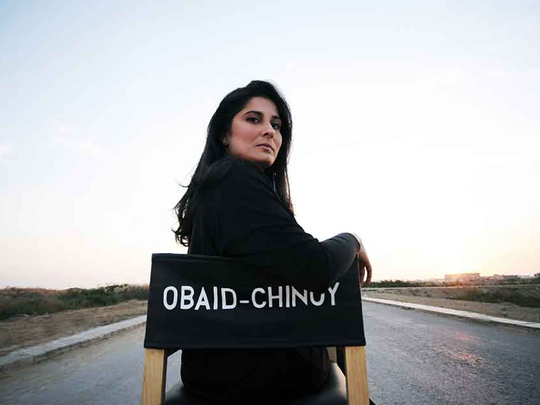
On the 70th anniversary of Pakistan’s independence, Oscar-winning director Sharmeen Obaid-Chinoy is reimagining the past. Her exhibition, HOME1947, which debuted in Manchester on July 1, was an immersive reflection on the mass migration that followed the partition of India.
The aim of the project was to focus on ordinary, everyday people’s experiences of 1947. She wanted her audience to connect with how it felt to leave home.
Memories of home “HOME1947 is my ode to my grandparents’ generation who were part of the largest displacement that the world has ever seen across borders,” she says. “I grew up listening to their stories of home, the places they left behind, the conversations that were never finished, the sights and smells they could never go back to and the friendships that could not be rekindled. I wondered what it felt like for them to leave home and never return.”
Obaid-Chinoy collaborated with musicians, artists, film-makers, photographers and composers. She used a smell machine to recreate the fragrance of a flower called raat ki rani, which means the Queen of the Night and is native to the area in India her grandparents left. While the work may indeed be inspired by a specific event, it was also conceived with the intention of resonating with all refugees, displaced people or individuals who had simply left their home. “We had a man from Uganda walk through it and he said it reminded him of the displacement he felt,” says Obaid-Chinoy.
The exhibition had a profound effect on some audience members. Visitors left in tears but Obaid-Chinoy is all too familiar with eliciting a reaction from her audience.
One audience member for her 2016 documentary about honour killings, A Girl in the River — The Price of Forgiveness, was then Prime Minister Nawaz Sharif. He was so moved by the film that he made a vow to change the law. “We were very fortunate with A Girl in the River because the first screening of the film was
held at the Prime Minister’s Secretariat. He made an important speech and said there was “no honour in honour killing”.
At 38, Obaid-Chinoy remains steadfastly determined to shine a light on the injustices, ills and injured in society. Living in a country often portrayed as conservative, she is unflinching in her quest to expose the unreported underbelly of society. “I always make films on what I consider my barometer of anger,” she explains. “I don’t think there’s anything off limits for me.”
Quest for truth
While the Karachiite doesn’t shy away from uncomfortable truths, her films also reflect the humanity and relatability of the characters she depicts.
She believes it’s imperative to engage with an audience emotionally with captivating characters and stories. “It’s important because you can have someone who has a compelling story but isn’t able to connect with the audience.”
The film-maker’s subject matter is often harrowing and disturbing. She’s documented women afflicted with facial disfigurements, child terrorists and murders, and reported on children who have suffered serious injuries from war.
With such challenging subject matter, how does the Pakistani cope with the emotional strain? “The only way to overcome the emotional baggage of being in situations where you sometimes find yourself hopeless is to find hope in the fact that telling their story will evoke some sort of change,” she says. “Whether it’s attitude, law or in the lives of the people you directly affected by making that film – that’s what most film-makers hope for.”
Although the director recently focused on the past, on the 70th anniversary of Pakistan’s independence, how does she see its future? “I think Pakistan has a way of surprising you,” she says. “It’s a country that I would not put a wager on in terms of predicting the future.”


